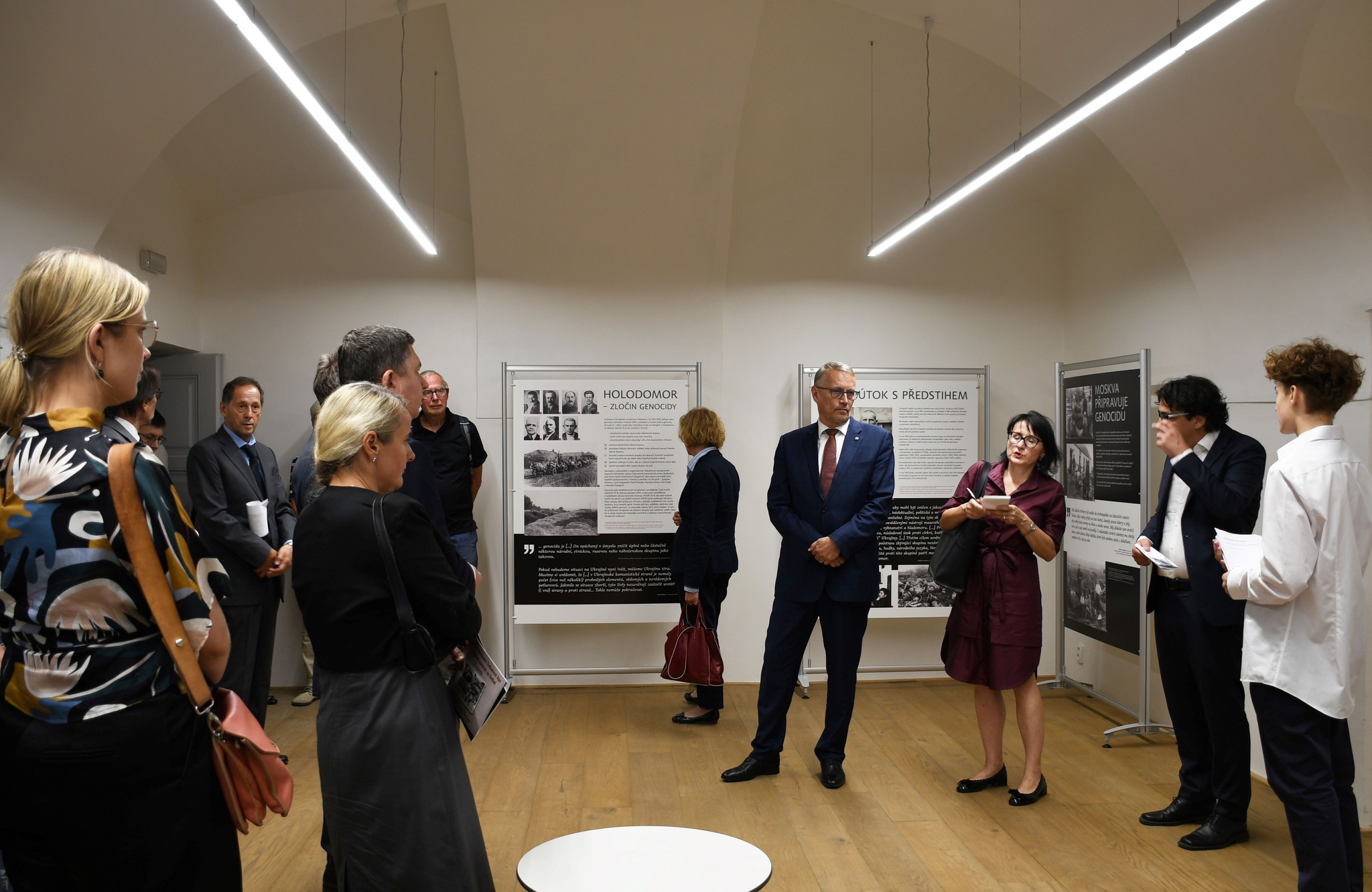The exhibition “Holodomor and the next genocide” opened in the Czech city of Terezin
On Thursday, July 27, the exhibition “Holodomor and the next genocide” opened in the city of Terezin (Czech Republic), prepared by the Holodomor Museum in cooperation with the Polish History Museum.
The opening of the exhibition was attended by: The Minister of European Affairs of the Czech Republic, Martin Dvořák; regional governor, Petra Petkova; vice-president of the Senate of the Czech Republic, Tomas Chernin; responsible for the affairs of the Embassy of Ukraine in Prague Vitalii Usatyi; deputy ambassador of Ukraine in Prague Agata Mazur; deputy director of the Polish History Museum Anna Piekarska; director of Center for Genocide Studies in Terezin Shimon Krbek.
The exhibition, which could be seen last November in Warsaw, tells about the crimes against the Ukrainian nation committed in the 1930s of the 20th century by the Soviet regime. The exhibition emphasizes the similarities between the criminal policy of the USSR and modern Putin’s Russia. It emphasizes the consequences of impunity for Soviet crimes and the need to hold Russia accountable for current atrocities.
“The Soviet Empire used genocide to stop Ukrainian resistance to the communist regime and prevent Ukraine from leaving the USSR,” Yana Hrynko, head of the exposition and exhibition department of the Holodomor Museum, emphasized in her video address. – After 70 years, the empire fell. And the memory of the Holodomor was restored after long denials and prohibitions. However, the Russian Federation, as the legal successor of the USSR, never once expressed apologies or condolences. On the contrary, it mocked the Ukrainian national tragedy and continued to deny the genocidal nature of the Holodomor.”
She added that hatred for everything Ukrainian and a war of aggression against Ukraine became the continuation of these denials.
The Polish History Museum expressed solidarity with Ukrainian colleagues who perform their duties in extreme conditions and risk their lives every day. “What we can do as a museum is to promote the activities of Ukrainian colleagues and spread real knowledge about Ukraine – its history and present. We know that this war, which is ongoing outside the eastern border of Poland, is not only about land and people but also about an attempt to impose a Russian vision of history on Ukrainians,” said Anna Piekarska, deputy director of the Polish History Museum.
The Holodomor Museum are thankful to our Polish colleagues, as well as the Terezin Centre for Genocide Studies, for their support and assistance in organizing the exhibition and spreading the truth about Holodomor and the war in Ukraine.
The exhibition can be seen at the Wieser House in Terezin, the headquarters of the Centre for Genocide Studies, until October 30.
